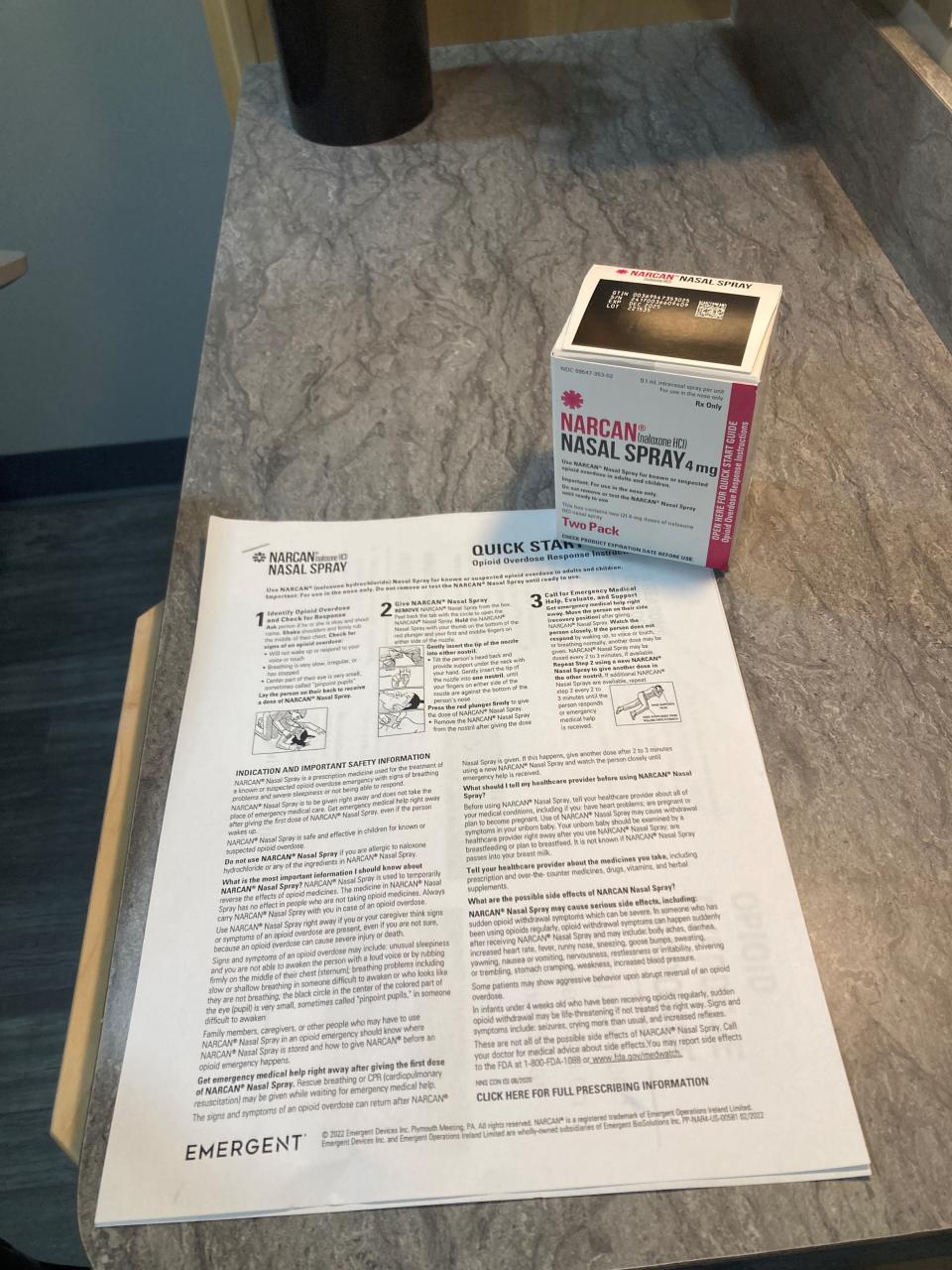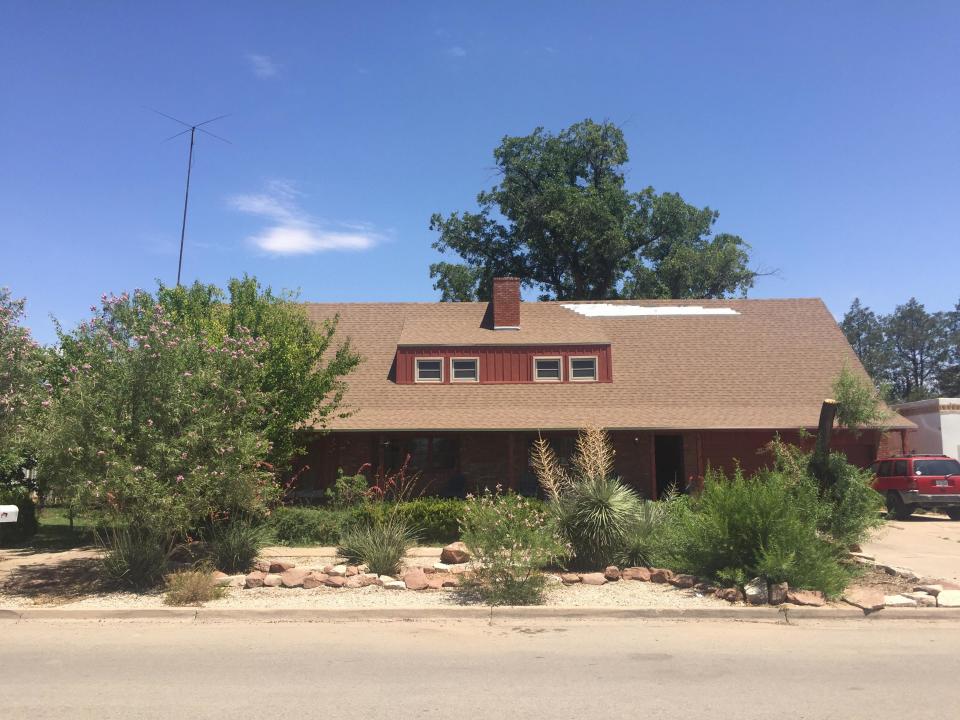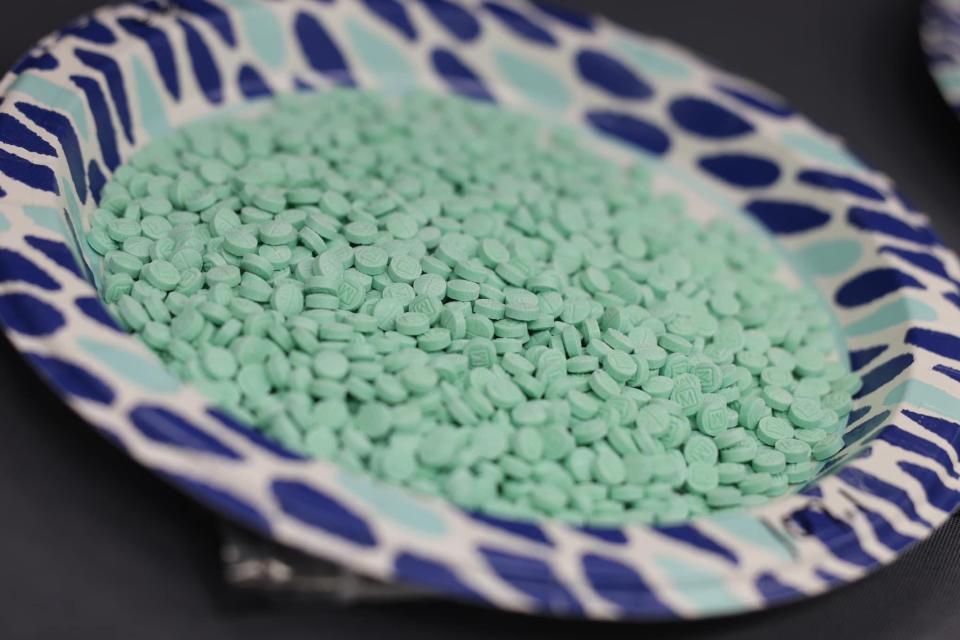Carlsbad and Eddy County to split opioid settlement funds
- Oops!Something went wrong.Please try again later.
The Carlsbad City Council approved Tuesday an agreement to share funds with Eddy County and the City of Artesia from an opioid lawsuit filed in 2022 by New Mexico Attorney General against four drug manufacture and distribution companies.
City of Carlsbad City Attorney Denise Madrid Boyea said it has yet to been determined how much the city would receive from the county as some lawsuits are still pending settlement.
Eddy County Manager Roberta Gonzales said the county received $560,000 in settlement funds as of Tuesday from the State of New Mexico.
More: Democrats block GOP-backed crime bills targeting fentanyl, trafficking in New Mexico
She said future settlement funds were forthcoming, but dates have not been determined.
Last year former Attorney General Hector Balderas announced his office settled a lawsuit against Johnson and Johnson, Amerisource Bergen, Cardinal Health and McKesson for $195.5 million.
In a press release from May 7, 2022, Balderas said the four companies agreed to pay the funds through at least 2040, with a significant portion paid by 2025.
According to the Drug Watcher website, 16 opioid manufacturing and distribution companies were part of similar suits.
Lauren Rodriguez, spokesperson for current Attorney General Raul Torrez, said cities and counties in New Mexico who joined the lawsuits against Albertsons, CVS, Walmart and Kroger/Smith’s received $107 million in settlements as part of the deal brokered by Balderas.

Rodriguez said Eddy County still has an opportunity to sign on to remaining settlements of KVK-Tech, Amneal, Hikma/West-Ward and Walgreens.
“The State of New Mexico entered into an agreement with various local governments including, the City of Carlsbad, the City of Artesia and Eddy County for how the settlement proceeds from the manufacturers or distributors would be distributed,” wrote Madrid Boyea in a memorandum to the Carlsbad City Council.
She said Eddy County agreed to be the lead agency for distribution of the funds between the three entities.
More: Increased mental and behavioral health services needed in Eddy County as demand grows
The Eddy County Board of County Commissioners approved a memorandum of understanding (MOU) between the three government bodies June 20.
“All three entities are working together to utilize the funds for what they are intended for; to provide the needed services to combat the opioid crisis and educate youth and the general public to the devastating effects of opioid addiction,” said Gonzales.
Madrid Boyea said the City of Carlsbad was collaborating with Eddy County and Artesia to determine the best utilization of funds to benefit those affected by opioids.
“The settlement funds will provide financial support to assist in the multi-pronged efforts to address opioid issues,” she said.

Phil Huston, executive director of the LifeHouse sobriety program in Carlsbad, said there have been discussions with Eddy County and the City of Carlsbad regarding settlement money for the program.
He expects both the county and the city to send out bid notices to sobriety organizations like LifeHouse.
“Some of the areas we would utilize funds for if we had the opportunity are diversion programs so we could partner with law enforcement to get people into treatment, mental health first aid training for the community and in schools, getting our mobile crisis program started, and continuing to meet the needs of the community in the face of the opioid crisis,” he said.
More: Eddy County joins New Mexico Attorney General in national opioid settlement
A closer look at the opioid crisis in the U.S.
Data from the Centers for Disease Control and Prevention (CDC) indicated the rise in opioid deaths in the U.S. came at various waves.
The first wave was in the 1990s when increased opioid prescriptions lead to increases in deaths starting in 1999, according to a CDC website.
The second began in 2010 with rapid increases in overdose deaths involving heroin, per the CDC.

“The third wave began in 2013, with significant increases in overdose deaths involving synthetic opioids, particularly those involving illicitly manufactured fentanyl,” read the CDC website.
CDC noted the market for illicitly manufactured fentanyl continues to change and can be found in heroin, counterfeit pills and cocaine combinations.
The CDC cited drug overdose deaths from opioids increased nearly 30 percent from 2019 to 2020 and nearly 75 percent of drug overdose deaths in 2020 involved an opioid.
This article originally appeared on Carlsbad Current-Argus: Carlsbad and Eddy County discuss use of opioid settlement money

